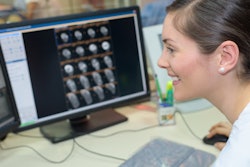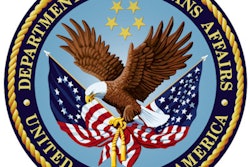
Advanced-level nurses would be able to order and interpret some medical imaging exams in the U.S. Department of Veterans Affairs (VA) health system under a proposal issued late last month. Advocates for radiology are vowing to fight the proposal, saying it would compromise patient care and lead to inappropriate imaging utilization.
In a May 25 proposed rule in the Federal Register, medical imaging exams are among a number of specialty procedures that could be performed by nurses with advanced training. The proposal says it is designed to "increase veterans' access to healthcare by expanding the pool of qualified healthcare professionals" who are authorized to provide health services without the supervision of physicians.
While the proposal was ostensibly designed to address the VA's ongoing problem of long waits for healthcare services, it could represent an unprecedented intrusion by nurses into medical procedures that traditionally have been provided only by physicians -- setting off a major turf battle between the two professions.
Plagued by delay
The VA healthcare system has been beset by scandal in recent years as media accounts reveal a system plagued by delays in delivering medical care to veterans. In 2014, news reports charged that long wait times at the VA's Phoenix Health Care System led to a number of deaths among patients waiting for healthcare services -- including radiology studies. VA investigators later found that scheduling problems at the Phoenix VA led to a number of the problems, but staffing woes continue to be an ongoing issue.
The May 25 proposal is designed to address the VA's staffing woes by expanding the number of services that advanced-practice registered nurses (APRNs) can perform, and "permit [the] VA to use its healthcare resources more effectively." The expansion would be consistent with the role of APRNs outside of the VA sector, the proposal claims. It also notes that the Indian Health Service already grants "full practice authority" to advanced-level nurses.
"This pre-emptive rule would increase access to care and reduce the wait times for VA appointments utilizing the current workforce already in place," the proposal states.
The proposal would divide advanced-level nurses into four categories: certified nurse practitioner (CNP), certified registered nurse anesthetist (CRNA), clinical nurse specialist (CNS), and certified nurse-midwife (CNM). Individuals in each category could perform certain procedures previously reserved for physicians.
The nursing category of relevance to radiology is the certified nurse practitioner. The rule states that CNPs would have full practice authority to provide the following services (italics added):
- "Comprehensive histories, physical examinations, and other health assessment and screening activities"
- "Diagnose, treat, and manage patients with acute and chronic illnesses and diseases"
- "Order, perform, supervise, and interpret laboratory and imaging studies"
- "Prescribe medication and durable medical equipment"
- "Make appropriate referrals for patients and families"
- "Aid in health promotion, disease prevention, health education, and counseling, as well as the diagnosis and management of acute and chronic diseases"
The proposal goes on to specify that advanced-level nurses would be able to take on the new roles without the supervision of physicians.
"This proposed regulatory change to nursing policy would permit APRNs to practice to the full extent of their education, training, and certification, without the clinical supervision or mandatory collaboration of physicians," the proposal states.
The proposal is vague on what types of added training or credentialing would be required of nurses before they can take on the proposed new responsibilities, other than to state that an APRN would be defined as a nurse who has completed a "nationally-accredited, graduate-level educational program." It also specifies that "full practice authority would be granted by VA upon demonstrating that the established regulatory criteria are met," and "when appropriate to the clinical setting."
The notice concludes by stating that the proposal would pre-empt any state and local laws that would apply to advanced-level nurses when they are working within the scope of their VA employment. The VA is accepting comments on the proposal through July 25.
Crossing a Maginot Line
The proposal is drawing fire from physician groups worried that it could represent an unprecedented intrusion on physician practice in one of the largest healthcare systems in the U.S. With respect to medical imaging, the American College of Radiology (ACR) is vehemently opposed to the proposal.
While the ACR is sympathetic to the VA's dilemma in trying to improve access to care, allowing nurses to perform studies reserved for doctors goes too far, according to Cynthia Moran, the ACR's executive vice president of government relations, economics, and health policy.
"They crossed the Maginot Line by allowing the studies to be interpreted by professionals who are nonphysicians," Moran said. "That is opening up a huge can of worms that the physician community across the board will fight."
The ACR believes that the VA proposal is flawed on a number of levels. For one thing, the proposal could compromise the quality of healthcare for a patient population that often has more complex health issues than the general population -- and who deserve the highest level of care given their service to the country, she said.
What's more, studies have shown that primary care providers -- including nurse practitioners -- often end up ordering more medical tests than specialists. This could drive imaging utilization higher, which is exactly the opposite of what the VA is trying to accomplish. The problem is especially pronounced because the VA has no system-wide tools for decision support that could guide nurses as to the type of scan that would be most appropriate for a certain clinical condition.
Finally, the proposal is vague on the type of training that nurses will need to be able to fulfill their expanded roles, according to Gloria Romanelli, senior director of government relations at the ACR.
"The way it is written, it is not entirely transparent," she said.
Physicians up in arms?
The ACR predicts that the physician community will rise up against the VA proposal, and indeed momentum is already building. On May 26 the American Society of Anesthesiologists (ASA) held a press conference denouncing what it called a "dangerous" policy change that would lower the standard of care for veterans and "put their health and lives at risk." The group is directing its members to www.safevacare.org, where they can express their opposition to the proposal.
The American Medical Association (AMA) has also expressed its disappointment with the proposal. In a May 25 press release, the AMA noted that physicians receive more than 10,000 hours of education and training, and it said the proposal could undermine the quality of care in the VA system.
The ACR predicts that the physician community will be united in its opposition to the VA's move. The group is preparing its own response and also plans to work with allies in Congress to exert leverage on the Obama administration and get it to back down from the proposal.
In the end, Moran said it's questionable why nurses would want assume a responsibility -- image interpretation -- that not even primary care physicians want to do.
"Primary care doctors already defer to radiologists for image interpretation," Moran notes. "Why would nurses want to take this on?"



















